Ballet
Nouvelles+
Creating Space: A Conversation on Equity, Diversity and Inclusion
12 août 2021
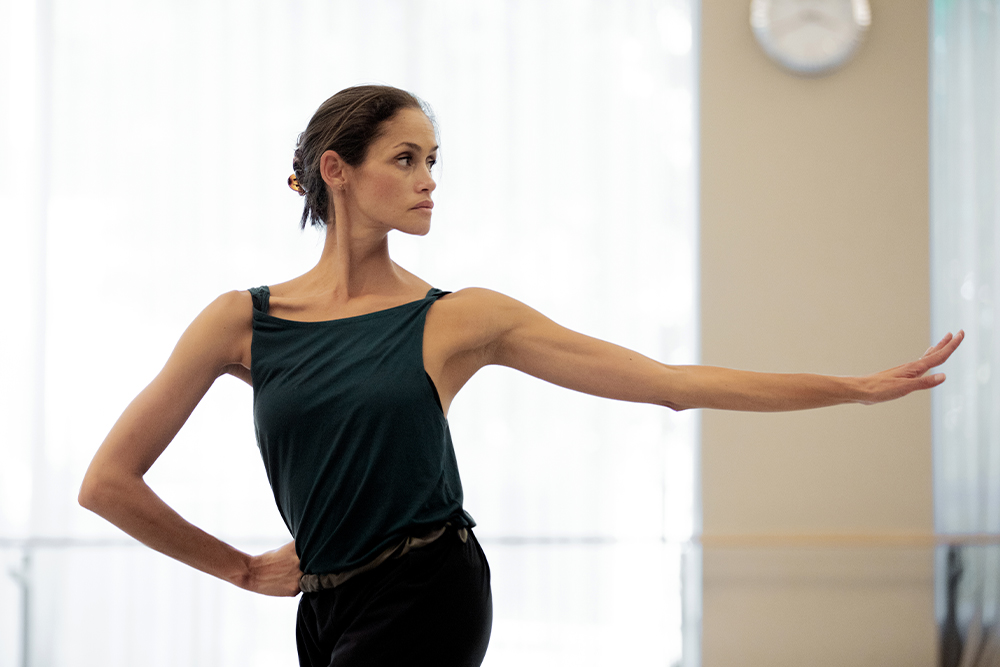
Tanya Howard in rehearsal for Trase Pa. Photo par Karolina Kuras.
In juin 2021, First Soloist Tanya Howard interviewed Spotlight Series Choreographer Kevin A. Ormsby and Corps de Ballet Members Alexander Skinner and Tene Ward, inviting them to share personal reflections on what it means to create space with respect to Equity, Diversity and Inclusion (EDI) in the ballet world.
Tanya: What does “creating space” mean to you? Are there any greater learnings from the last year that you would like to see emerge in the dance world post-COVID?
Alexi: Creating space means inclusion. It means offering a seat at the table and making sure everyone is represented. It also means making sure that once everyone is there, that their voices are being heard. It involves firstly a lot of listening and from that listening, ensuring next steps for everyone to be seated equitably. I think that all of us in the dance world have the responsibility, now more than ever, to make sure a greater range of people and communities (ideally all) are being reached and are seeing a place for themselves and their stories in the art form. Our art is about sharing stories and through these stories, we can reach and connect with even wider audiences.
Kevin: I am continually asking myself: what does it look like to create spaces with the artists and their wellbeing at the centre? The dancers are vocal and have ideas and they matter. If they feel empowered in their own individualities, whether that be their race, their class or their sexuality, they can give so much more to the spaces in which they are working. That’s something I’m trying to develop and learn more about as we arrive out of the pandemic. Creating space is constant. You will never check a box and say, “I’ve done it, I’ve created space.” Space is constantly shifting, and we change with it.
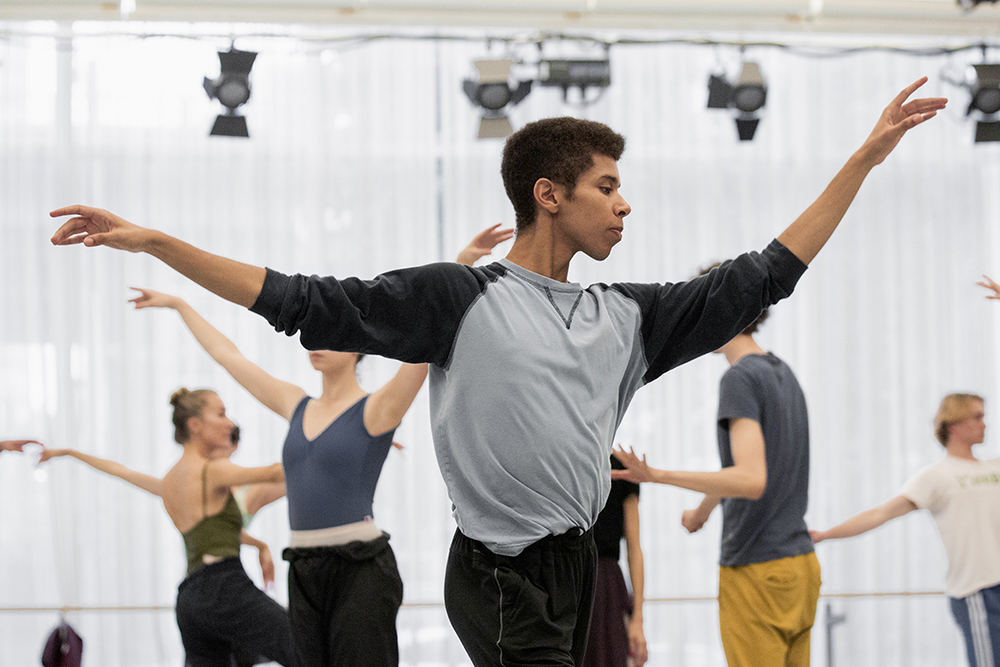
Alexander Skinner in rehearsal for Orpheus Alive. Photo par Karolina Kuras.
Tanya: In your opinion, what is the best way to be an ally or an advocate for this shift in our dance community?
Tene: To be an ally comes down to the individual work you want to do. Are you going to ask the questions: Am I educating myself? Do I understand the history of ballet and how that is impacting the BIPOC (Black, Indigenous and People of Colour) communities to this day? Do I speak up when I hear something or see something that isn’t ok? To be a good ally is to help uplift and support those people that haven’t had that support for generations; especially in our field, we haven't had that support for a long time. It’s incredible to see that it’s finally starting to happen. We’re opening up topics that we felt that we could not speak about before. Hearing more stories about more people is going to be the beauty of our artform and keep it relevant for generations to come.
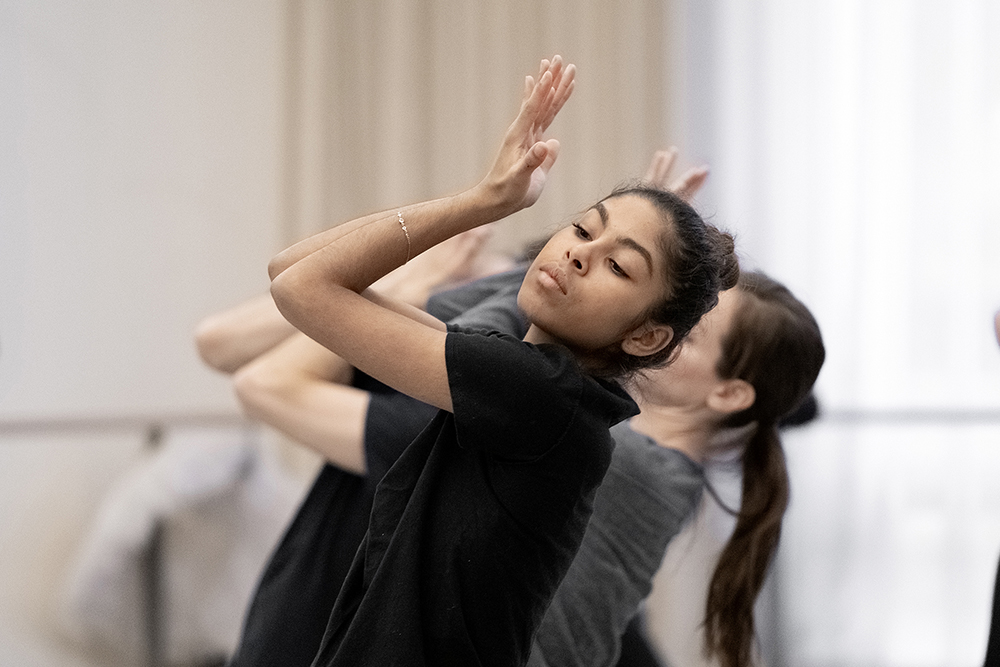
Tene Ward in rehearsal for Angels' Atlas. Photo par Karolina Kuras.
Tanya: How can shifts in choreography and inspiration create a shift in the dance world?
Kevin: Representation and seeing someone that looks like you on stage shifts the performances completely. Seeing dancers execute a technical practice that they may not be used to (as the dancers did in Trase Pa performing an amalgam of ballet, West African and Haitian Caribbean dance) and performing a hybrid form of technicality is part of that shift. This means that companies need to think about what classes the dancers are taking and what other forms they need to consider understanding, even though they may be working in a ballet company with a ballet form. We have to think about what exactly ballet can be for a diverse group of dancers.
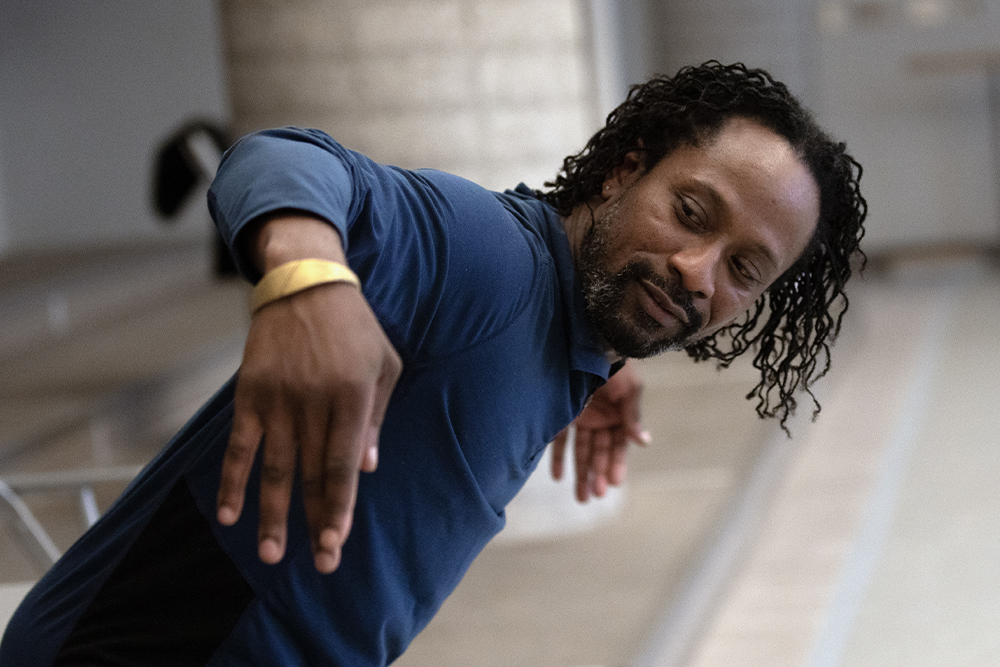
Kevin A. Ormsby in rehearsal for Trase Pa. Photo par Karolina Kuras.
Tanya: As National Ballet Apprentices, Tene and Alexi, you both participated in YOU dance, the company’s community engagement programme performing for students in elementary schools. How did that experience affect your understanding of inclusiveness in ballet?
Tene: What I will continue to carry with me is our ability to inspire, especially a younger generation of future dancers. When I was a kid, I never saw anyone who looked like me on stage, so it’s inspiring to know now that when we're participating in YOU dance or even performing company shows, there could be someone in the audience or watching our programmes online who will feel they are represented. They can see that this is something they can achieve and that they can be in this space and it's safe for them. Representation is so important and that's something that is going to continue to motivate me.
Alexi: The responses that I received when we went into schools taught me how key it is to have representation, especially in a field where we are able to reach so many. I heard from some parents that YOU dance was not only the first time their child had seen ballet, but also the first time they had seen someone who looked like them on stage. To think of the impact that could have on someone at such a young age – I still carry it in my heart.
Alexi cont'd: Representation matters because it fosters a sense of belonging, and it removes barriers. I can’t help wondering how many people may be turning away from this art form due to not seeing themselves represented within it, be it as artists or as supporters. What ideas are being missed? What stories are we missing out on because people are saying, “I’m not seeing myself there”? I think that we have the responsibility in the dance world, because our art is about sharing stories (and reaches wide audiences), to ensure that what we are presenting is a reflection of the world we live in, and of what society looks like today. When you see a future for yourself through someone who looks like you or speaks the same language as you or has a similar background, suddenly there’s a path that opens up in front of you, and that’s where magic can happen.
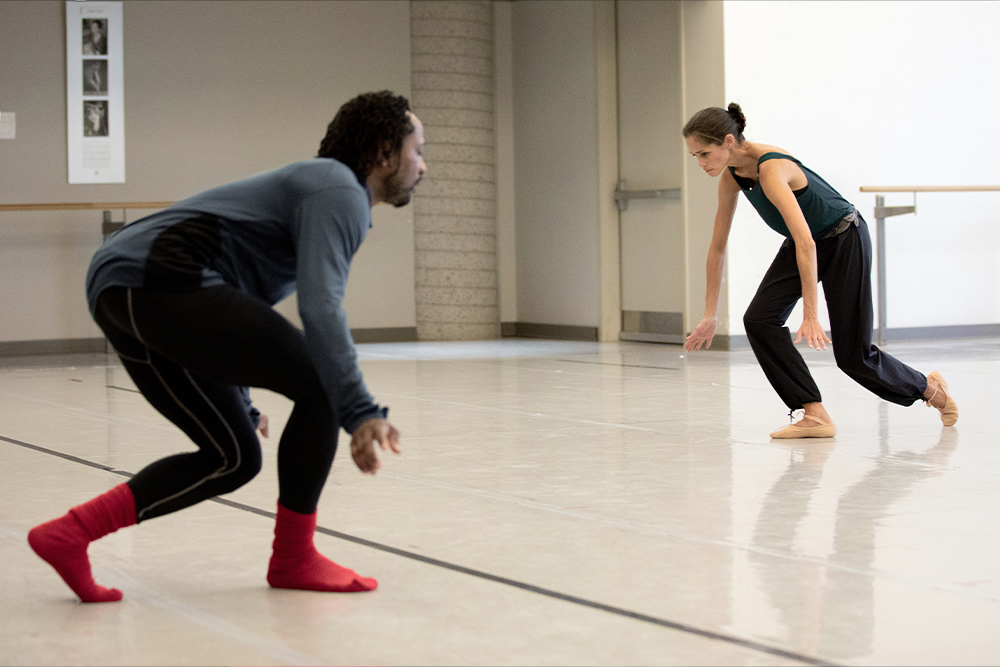
Kevin A. Ormsby and Tanya Howard in rehearsal for Trase Pa. Photo par Karolina Kuras.
Thank you to Tanya, Kevin, Alexi and Tene for participating on this panel on Equity, Diversity and Inclusion.
Alexander Skinner is sponsored through Dancers First by Anne & David LeGresley.
Tene Ward is sponsored through Dancers First by Michelle & Duncan Sinclair.
